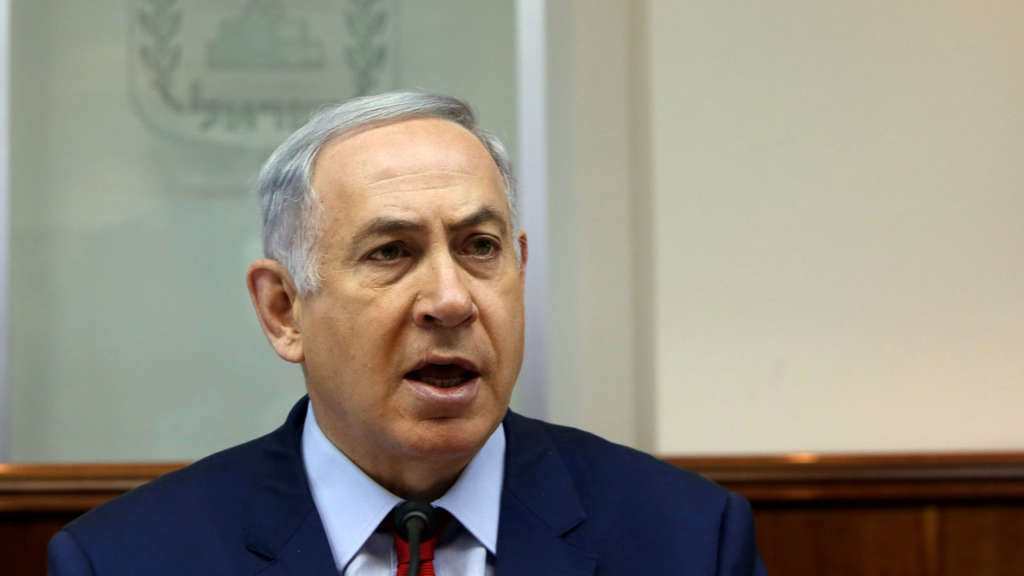Israeli Prime Minister Benjamin Netanyahu said Monday that his nation’s agreement with Turkey to normalize ties will have “immense” implications for the Israeli economy, six years after a deadly raid on an aid flotilla soured relations.
Netanyahu, speaking after meeting U.S. Secretary of State John Kerry in Rome, said the agreement would have major implications for the Israeli economy, with his country seeking export partners for its natural gas.
“I think it’s an important step here to normalize relations,” Netanyahu told reporters.
He described the deal as having “immense implications for the Israeli economy, and I use that word advisedly.”
Kerry welcomed the deal, saying, “We are obviously pleased in the administration. This is a step we wanted to see happen.”
As Netanyahu and Kerry met for the second time in as many days, the U.S. top diplomat welcomed the agreement and congratulated Netanyahu. He said the U.S. has been working on the rapprochement for several years, and called it a “positive step.”
Netanyahu, however, made clear the naval blockade of Gaza, which Ankara had wanted lifted under the deal, would remain in force, although humanitarian aid could continue to be transferred to Gaza via Israeli ports.
Turkish PM Yildirim said the “wholesale” blockade of Gaza was largely lifted under the deal, enabling Turkey to deliver humanitarian aid and other non-military products.
A first shipment of 10,000 tonnes would be sent next Friday, he said, and work would begin immediately to tackle Gaza’s water and power supply crisis.
“Our Palestinian brothers in Gaza have suffered a lot and we have made it possible for them to take a breath with this agreement,” Yildirim told a news conference in Ankara.
Israel and Turkey were former close allies, but relations imploded in 2010 following an Israeli naval raid that killed nine Turkish activists, including a dual American citizen, who were on a ship trying to breach Israel’s blockade of the Gaza Strip.Turkey then expelled Israel’s ambassador and froze military cooperation after a 2011 U.N. report; Israel and NATO member Turkey, which both border Syria, reduced intelligence sharing and cancelled joint military exercises.
The move toward rapprochement comes amid Turkey’s deepening isolation in the region, following a deterioration of ties with Russia and Egypt as well as the turmoil in neighboring Syria.
Turkish President Recep Tayyip Erdogan and Palestinian President Mahmoud Abbas spoke by phone overnight, with the Turkish leader explaining the agreement’s main points, a statement from the Palestinian presidency said.
Erdogan also met with Doha-based Hamas leader Khaled Meshaal on Friday in anticipation of the agreement.
